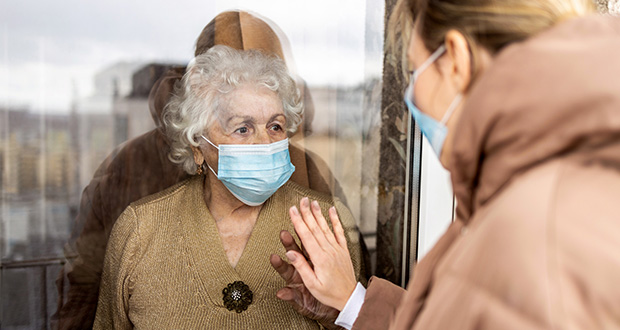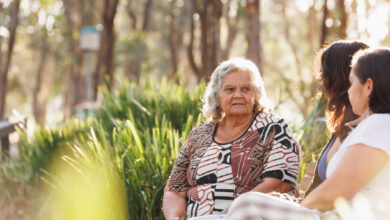The next frontier: Impact of Covid beyond mortality rates

A call for further research has been made to investigate the mental and physical impact Covid-19 had on older people in residential aged care.
More than 5,500 people living in aged care facilities have died due to Covid since the start of the pandemic.
Conjoint Professor of Geriatric Pharmacology Medicine at the Kolling Institute Sarah Hilmer said mortality rates alone do not fully capture the challenges faced by this population.
"Grim mortality statistics are only part of the story," conjoint professor Hilmer said.
"Now the main game in town is to ensure that people in residential aged care facilities not only survive Covid but also recover well and receive the support they need.
"We must understand the physical and cognitive decline they face and address the challenges they encounter in aged care facilities."
From January 2022 to May 2023, Covid led to 5.3 per cent of all deaths in permanent residents in aged care facilities.
Since December 2021, there have been just over 90,000 deaths in residential aged care, with Covid accounting for 5.2 per cent of those.
Nearly half of the eligible aged care residents had received a booster dose in May 2023.
Early in the pandemic, the overall mortality rate among unvaccinated aged care residents was estimated to be between 23 to 39 per cent.
Even among those fully vaccinated, the mortality rate remained substantial at 15 per cent.
Unvaccinated people were 13 times more likely to die from a Covid infection than those who received three or more vaccine doses.
"It is essential that people living in residential aged care stay up to date with their vaccinations," conjoint professor Hilmer said.
Vaccines are extremely effective in reducing mortality but this effect decreases in months.
"The persistence of high Covid cases and deaths in residential aged care facilities, despite vaccination efforts, underscores the challenges in protecting this vulnerable group."
She said all stakeholders needed to ensure resources, such as physiotherapy and nutrition, were available to help people recover as well as they could from Covid.
The pandemic affected not only the physical health of older people but also their mental health through facility lockdowns, staff shortages, visitor restrictions, and overall distress.
In a 2020 survey, 46 per cent of people over 65 reported negative impacts on their mental health due to coronavirus-related worries, compared to 31 per cent two months earlier.
A study in China found that one in three older people experienced depression and anxiety during the pandemic.
An international review reported that residents were confused, distressed, and frustrated by not seeing their family due to visitor restrictions.
Conjoint professor Hilmer said it was crucial to prevent long-term frailty and disability among older people by enabling recovery and helping them regain their strength.
"Covid was a traumatic and significant event," she said.
"Understanding the impact Covid had on older people is the next frontier."
Email: [email protected]





